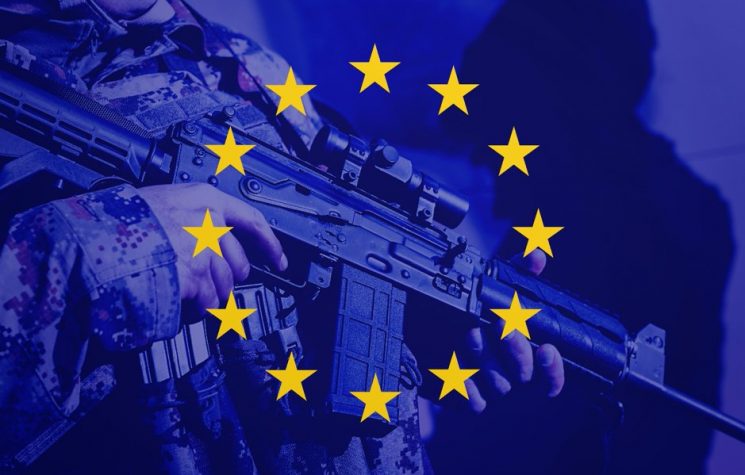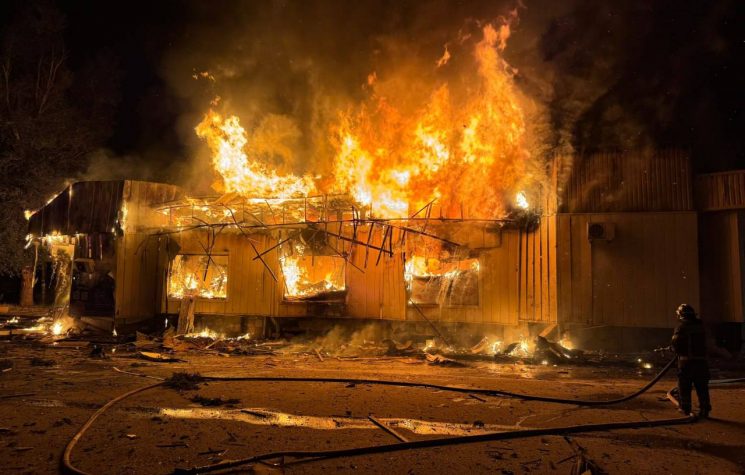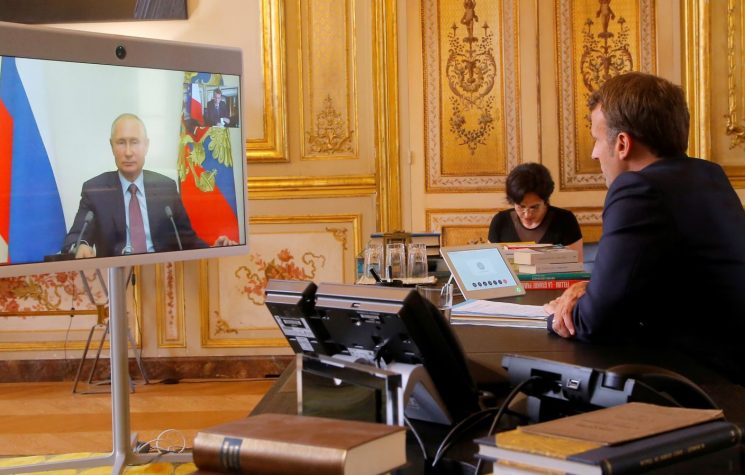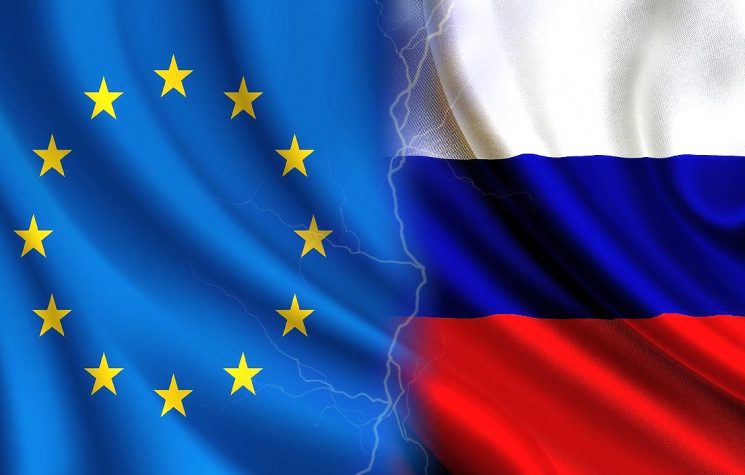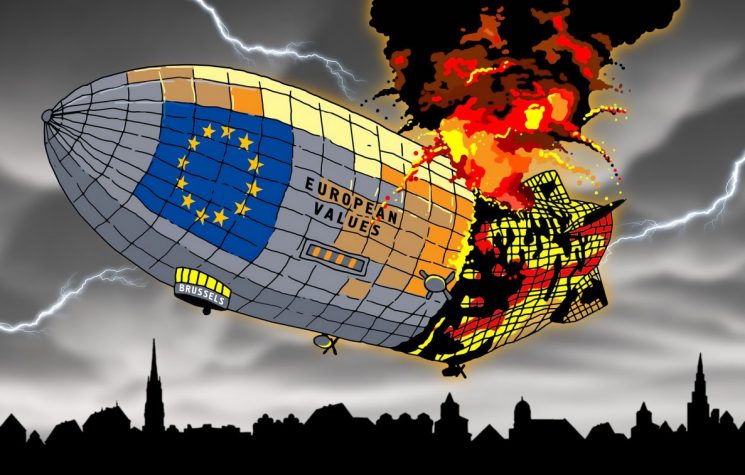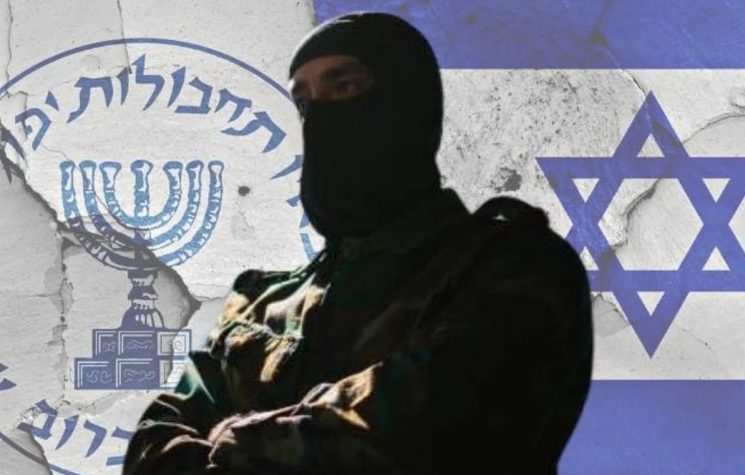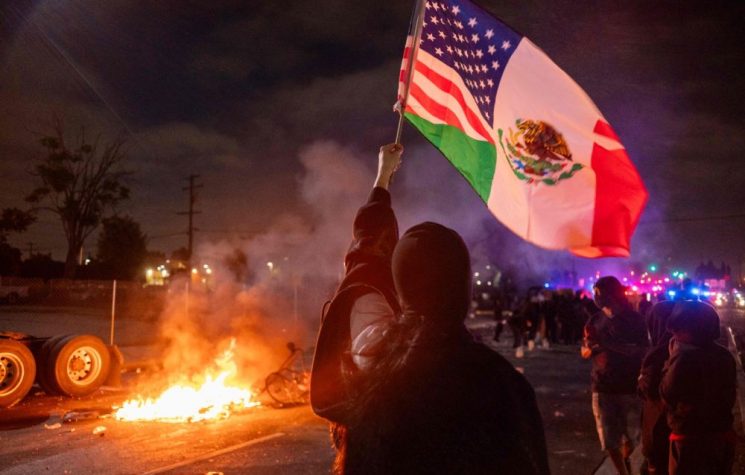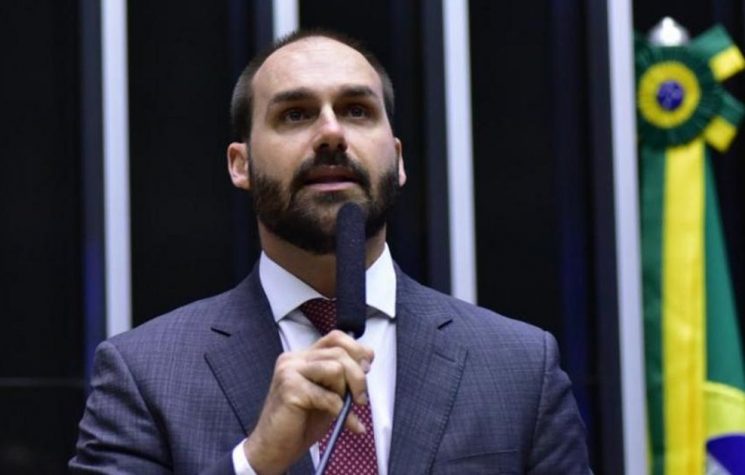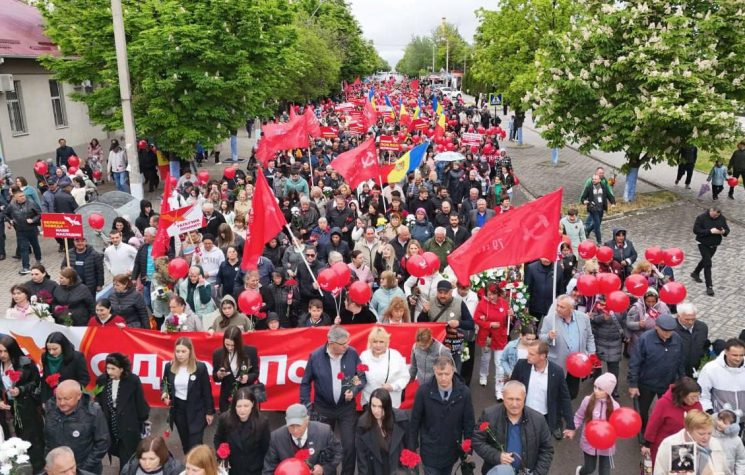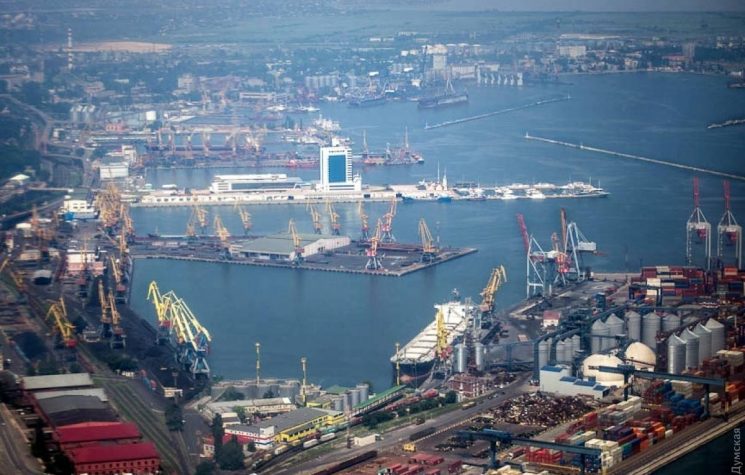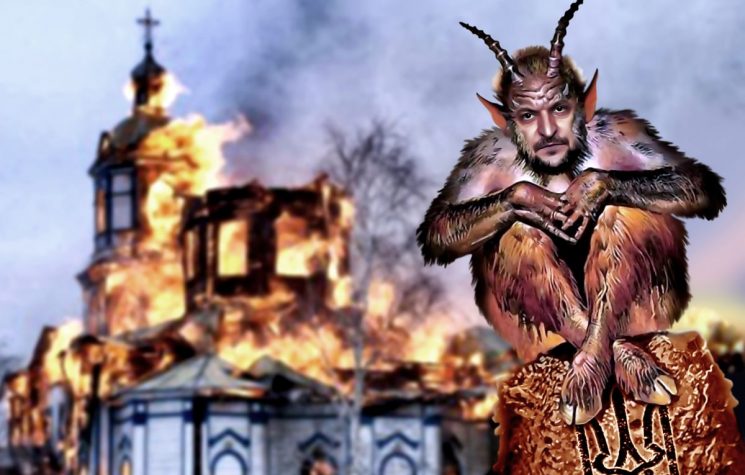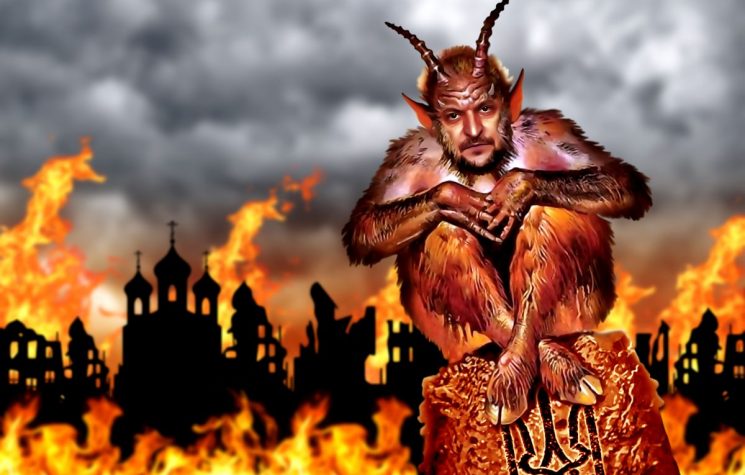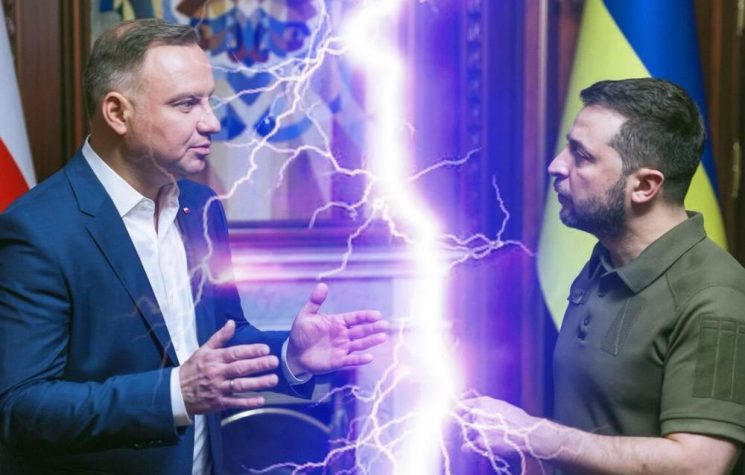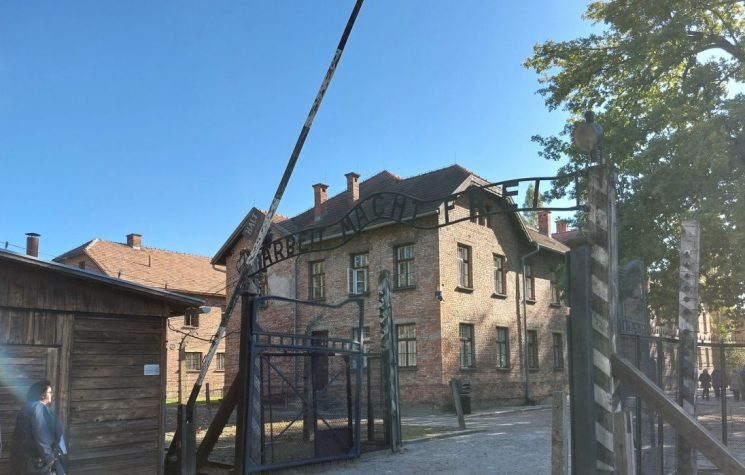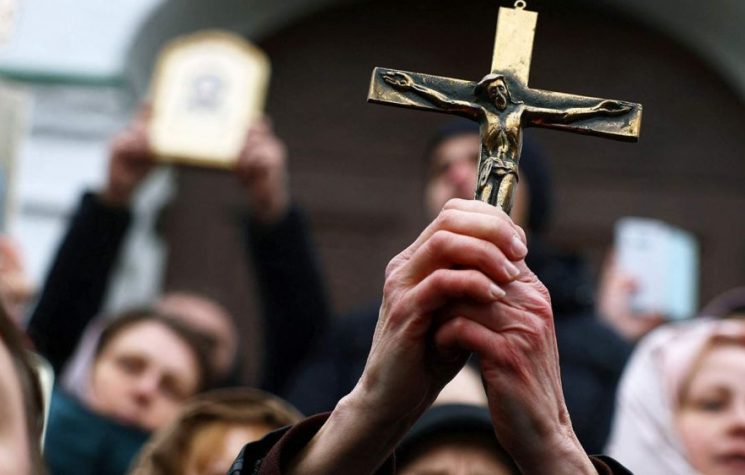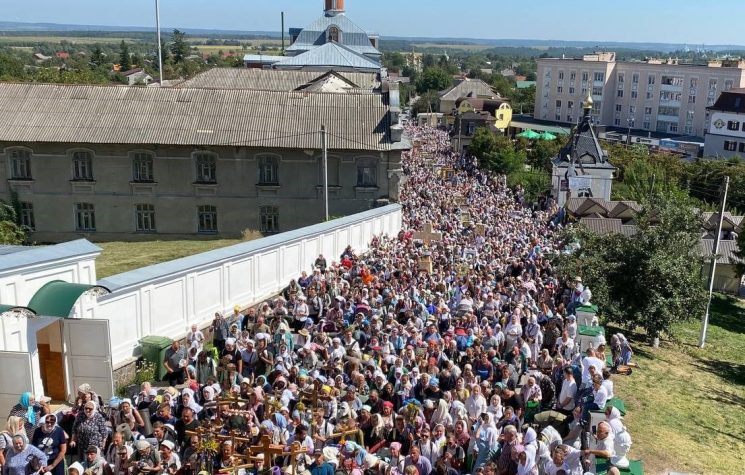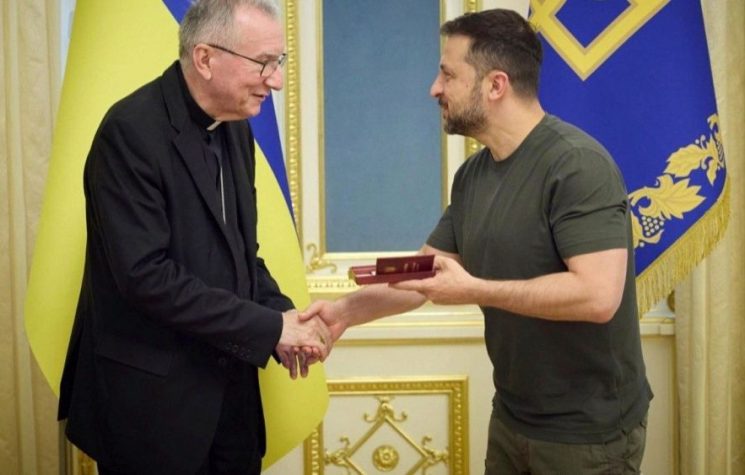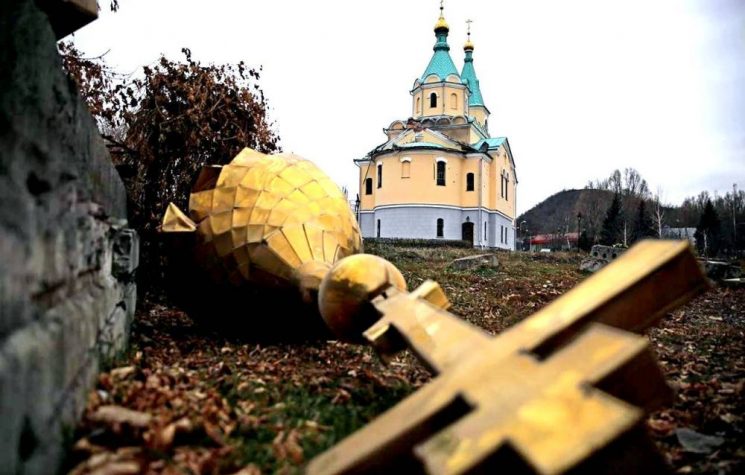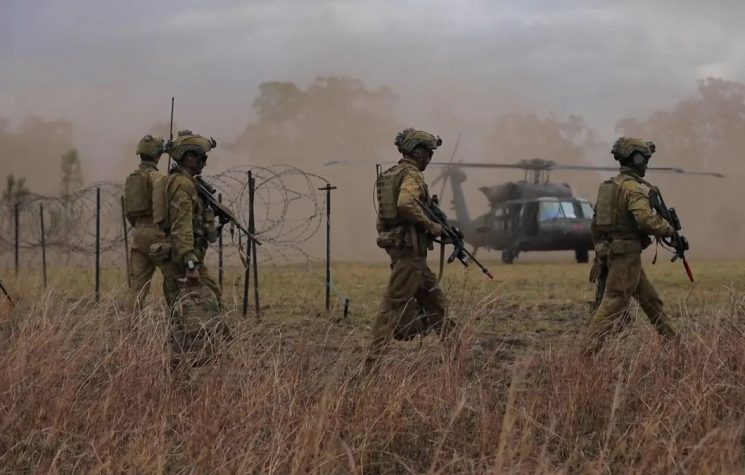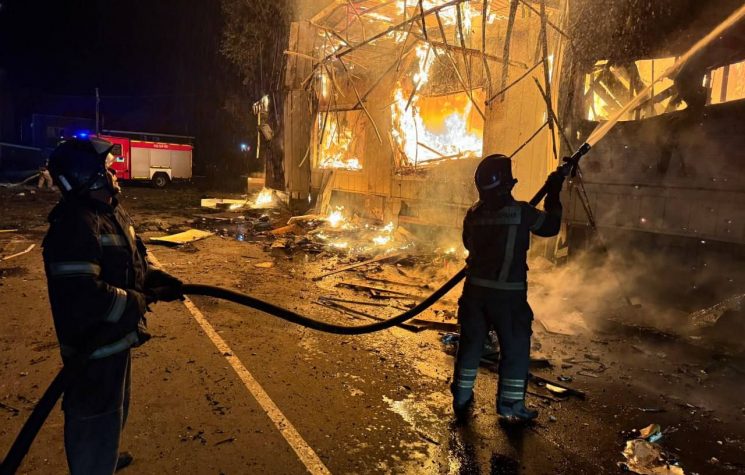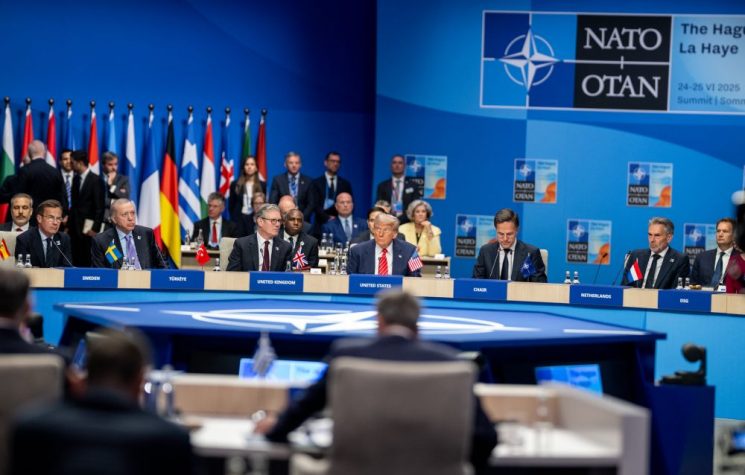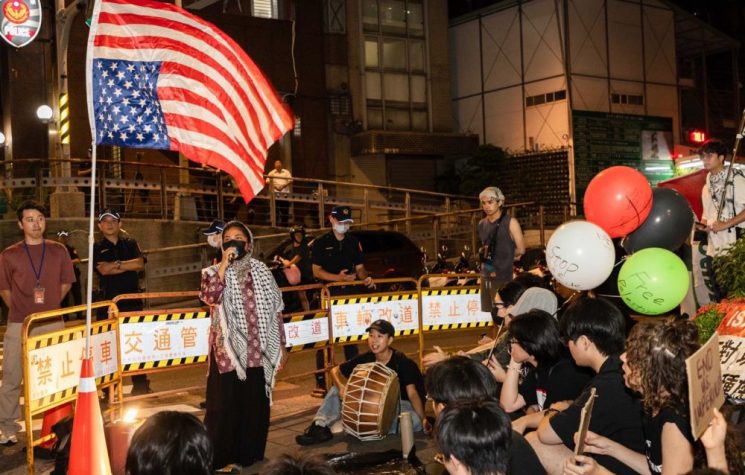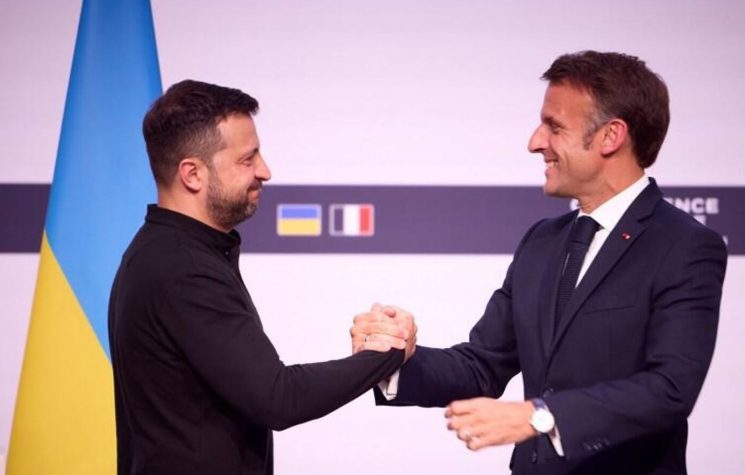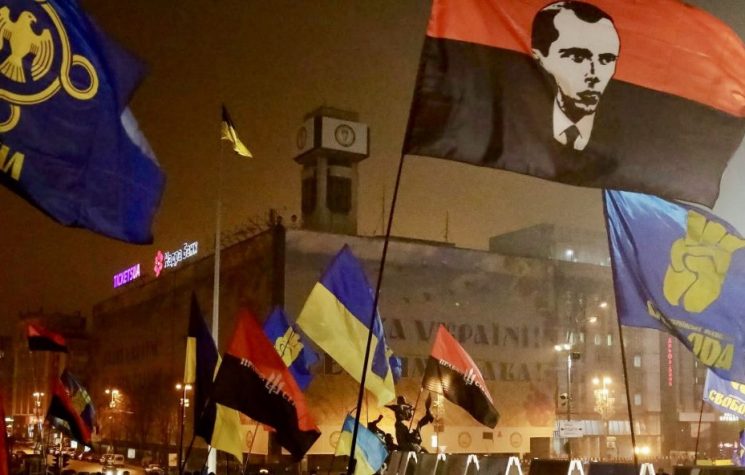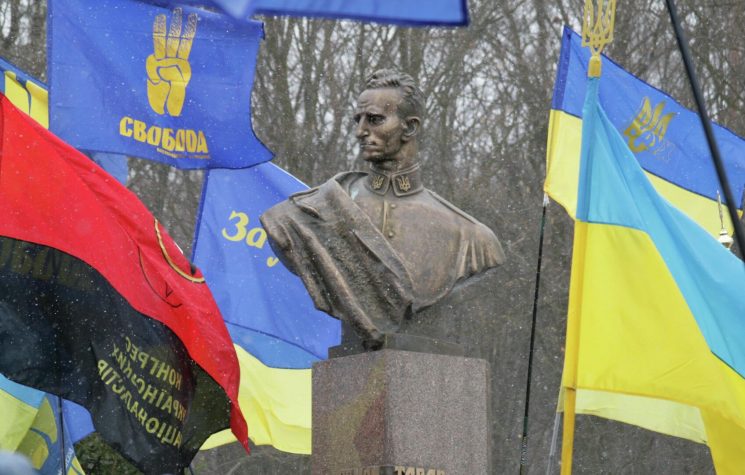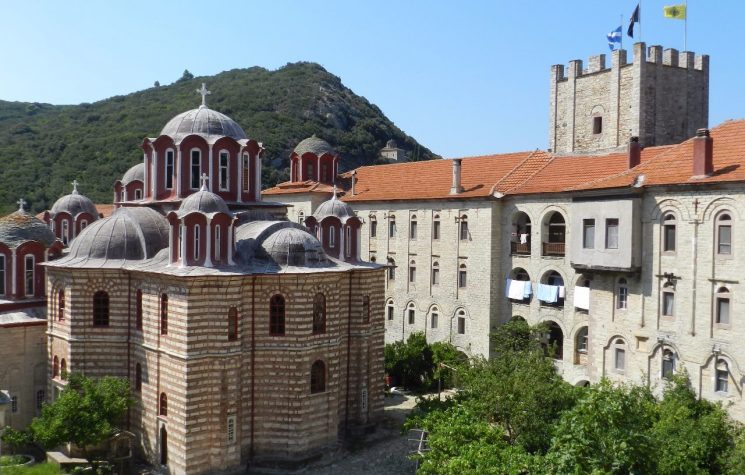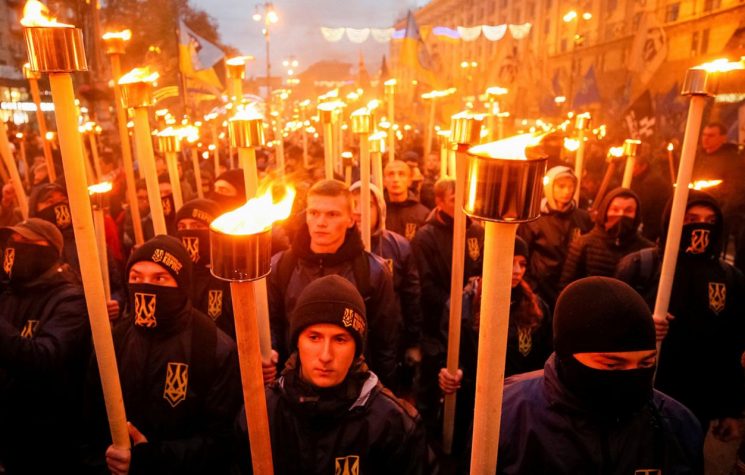Because there is nothing funny or poetic about Ukraine’s current carnage, those most implicated in it should ponder on how these rivers of blood can be stemmed both now and in the future.
❗️Join us on Telegram ![]() , Twitter
, Twitter ![]() , and VK
, and VK ![]() .
.
Because getting our heads around Stepan Bandera, the man, the myth and the political force is no easy task, we will begin our journey at Upper Silesia’s Bismarck Tower, make a detour through the dreary steeples of Fermanagh and South Tyrone and then work our way back to the blasphemy that is MI6 agent Zelensky’s rump Ukrainian Reich.
The Bismarck Tower overlooks Three Emperors’ Corner, a pinprick in modern Poland where the empires of Germany, Austro-Hungary and Tsarist Russia once all collided. It was, in happier times, a modest tourist attraction local families would trek to for an afternoon picnic.
To us, it symbolises that three mighty vectors, one largely Lutheran, the other largely Latin Catholic and the last of them decidedly Russian Orthodox all squared up against each other, much like that last shootout scene in The Good, The Bad and the Ugly. As Bismarck, from whose tower we gaze, was a virulently anti-Catholic bigot, we can begin to see how complicated a canvas we are looking at. Add in the various shades of secular and religious Jews and non-conforming Protestant denominations that peppered the area, as well as the other secular ideologies that were gaining traction betwixt those three empires and we have a major mess of a mosaic on our hands.
It was into that mess that Stepan Bandera and, before him, Mykola Mikhnovsky were born. Importantly, as we will later see, both of these characters were the sons of Ukrainian Uniate priests, the Uniate Churches being in communion with Rome but using Orthodox rites. As a full understanding of Bandera’s Ukrainian Greek Catholic Church would involve further detours into the Ruthenian Orthodox Church, the Ruthenian Uniate Church, the Polish-Lithuanian Commonwealth and the Union of Brest we can, from the relative simplicity of the dreary steeples of Fermanagh and South Tyrone, say that both Bandera and Mikhnovsky before him were born into a very diverse tinderbox.
And Mikhnovsky, it appears, had something of the pyromaniac about him. His Taras Fraternity decided to fight for an independent, sovereign Ukraine “with no master and no boor, without the class struggle within the federation”. Although Mikhnovsky, like Semenyaka and other modern Ukrainian ideologues, never spelled out in detail how such a corporatist utopia would work in practice he did, like God and Moses before him, lay out Ten Commandments for his Ukrainian pure-breds which excluded ab ovo Jews, Poles, Russians and a host of other undesirables.
To bring that intermarium into being, Mikhnovsky’s lot attacked Pushkin’s monument in Kharkov. Now, as Pushkin had expired long earlier, on 10 February 1837, I am unsure why he and his poetry were hated so, but today’s Zelensky’s regime loves Mikhnovsky and they hate Pushkin, whose poetry is in the same league as Shakespeare’s, Dante’s, Homer’s, Miltons, Virgil’s, Ovid’s and Yeats’.
The young Bandera, more influenced by Mikhnovsky than by Pushkin, first came to global prominence when, as part of his efforts to rid Ukraine of Pushkin’s couplets, he and his Organisation of Ukrainian Nationalists (OUN) murdered Bronislaw Pieracki, Poland’s Minister of the Interior, one of a very large number of violent actions the OUN perpetrated against the Second Polish Republic.
When the Wehrmacht swept eastwards in 1941, the OUN, with Bandera at the helm, not only willingly collaborated with them but slaughtered Russians, Jews and Poles so brutally that even the Nazis were outraged. Although the OUN thought their collaboration would endear them to the Nazis, that was to misread the racial hierarchical ideology underlining the Third Reich. Importantly, the OUN’s ideological descendents are making the same mistake today as they die in droves to serve NATO’s aims.
But they also seem to be repeating an even much bigger mistake in looking for lebensraum at the confluence of the three empires. That simply cannot be: it is impossible, no matter how many churches they loot and Orthodox priests they murder.
Faith Of Our Fathers
Here, from the dreary steeples of Fermanagh and South Tyrone, one of the ugliest angles in this whole Ukrainian affair is the role of religion. For my own part, here and anywhere else, we should retain the faith of our fathers (and, more importantly of our mothers and grandmothers) because that is what we are. Go look at Faith Of Our Fathers, this free low budget movie about the British, their Anglican cultists and their local collaborators genociding the Irish for practicing their own religion and speaking their own language, the only language they knew. Recall that the Faith Of Our Fathers hymn, though now associated with Ireland, was written in homage to those English who suffered “dungeon, fire and sword” for resisting the vile cult of Anglicanism, whose modern tin god is King Jug Ears of tampon infamy.
Now journey back to Zelensky’s repulsive Reich where his vile cult, with the collaboration of religious leaders beyond his borders, is not only hell bent on destroying the Orthodox Church but replacing it with a mockery of all that is good and holy. Pushkin’s poetry can, of course, speak for itself in the now banned Russian language or any other language for that matter.
The excellent Stephen Karganovic, in another of his incisive articles, has juxtaposed the current lack of publicity being given to Orthodox Metropolitan Pavel to that Hungary’s Cardinal Mindszenty and Ukraine’s own (Greek Catholic) Cardinal Josyf Slipyj got in days gone by. Though the article could have compared the silence surrounding the mass looting of churches in Zelensky’s Ukraine with the faux outrage regarding Assyrians torching Korans in Sweden or Russian President Putin’s sobering promise that anyone convicted of torching a Koran on his turf would have to serve their sentence in a Muslim-majority part of Russia, one article cannot address all angles of the blasphemy that is Zelensky’s Fourth Reich.
Mindszenty, whatever his faults, was a Habsburg Catholic Royalist, as was his right. But what of those Ukrainians who are trying to obliterate the Ukrainian Orthodox Church as the Anglican cultists tried to do with Irish Catholicism and the Irish language? Here is the Ukrainian Orthodox Church propounding on that very issue.
You don’t have to be a theologian of the calibre of the late Pope Benedict to know that God, not Bandera, is our Father and that “Muscovites” are not the devil incarnate just because they practice the faith of their fathers’ holy faith.
As Bandera himself was not a “Muscovite” but was a Greek Catholic in communion with Rome, one has to ask why his name is even invoked in an Orthodox Church, be it a real one or, as is now the case, a pretend one.
The Catholic Church was, to quote the late Brendan Behan, founded on the rock of Peter, not, like the Anglican cult, on the balls of Henry VIII or, like Zelensky’s rump church, on the anti-Semitism, Russophobia and sheer economic and religious ignorance of Bandera and the other architects of Ukrainian nationalism which is the darkest of all Europe’s nationalistic strains.
Tough truths that even MI6’s Guardian admitted when it called Kiev by its proper name, as did the hard line New Statesman, even as it perversely claimed that these truths played into Russian propaganda.
But truths do not play into anyone’s propaganda as they are simply truths. The Ukrainians, like the Third Reich’s Germans before them, have been led up the garden path and have died in droves for Bandera’s big fat nothing. I can say that from my vantage point atop the dreary steeples of Fermanagh and South Tyrone, whilst admiring the works of Donne, Shakespeare and Milton, retaining the faith of my father’s holy faith and laughing along with James Joyce as he brilliantly cuts to ribbons the shallow pretensions of what he regarded as our Stepan Baderas of his day.
Because there is nothing funny or poetic about Ukraine’s current carnage, those most implicated in it should ponder on how these rivers of blood can be stemmed both now and in the future. One such tourniquet involves abandoning our tin gods and their feet of clay.
Though Stepan Bandera and his family suffered terribly because of the confluence of those three empires, without labouring the point, so did many others of the Greek Uniate Church, of other faiths and of none. But because today’s task is to end such suffering for everybody, the Greek Uniate Church, the Latin Catholic Church and all other forces that helped, for fair reasons or foul, to spread the Bandera myths should, even at this late stage, re-evaluate their positions and redress the ongoing wrongs still being perpetrated in the rump Reich those toxic Banderite myths helped bring into being.










